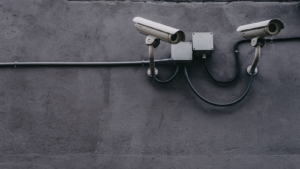
This discussion aims at unpacking the provision’s core objective of preventing state authorities from deploying surveillance tools against journalists and curbing interference that threatens press freedom.
In times where journalistic independence faces mounting threats, the European Media Freedom Act (EMFA) emerges as a beacon for protecting press freedom. At the heart of this legislative framework lies Article 4, a provision explicitly designed to shield journalistic sources from undue interference. This provision seeks to prohibit state authorities from employing surveillance tools against journalists, while also curbing other invasive actions that jeopardise the confidentiality and independence essential to journalism.
Yet, as this first EMFA Talk will explore, the provision leaves critical gaps that must be addressed to ensure its effectiveness in safeguarding journalistic sources.
A central concern stems from the potential reintroduction of a national security exception through the backdoor of Article 4(2) of the Treaty on the European Union (TEU), which could undermine the very protections Article 4 is meant to guarantee (see Kermer 2024).
Additionally, ambiguities persist about whether the provision extends its reach to encompass the increasingly prevalent outsourcing of surveillance activities to private entities.
This inaugural discussion sets the stage for a nuanced analysis of these issues, inviting participants to reflect on the balance between national security and press freedom.
The event will be chaired by Elda Brogi, Deputy Director of the Centre for Media Pluralism and Media Freedom. The talk will feature a discussion between Dirk Voorhoof, Emeritus Professor at the Human Rights Centre at Ghent University; Renate Schroeder, Director of the European Federation of Journalists; and Luigi Malferrari, EU Fellow at the Robert Schuman Centre and a member of the Legal Service of the European Commission in Brussels. The conversation will be moderated by Jan Kermer, Research Associate at the Centre for Media Pluralism and Media Freedom.
To attend (in person or online) please register at this link.
